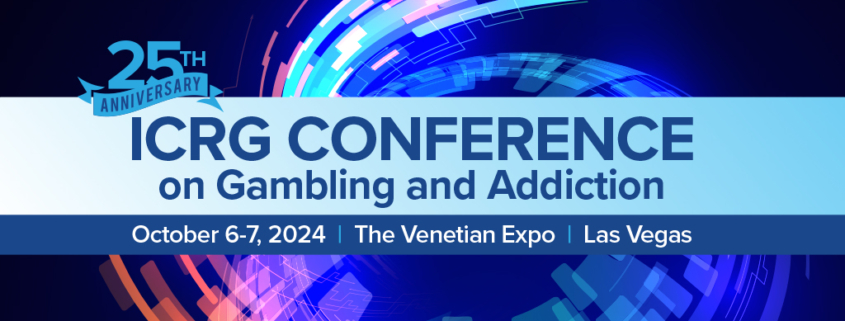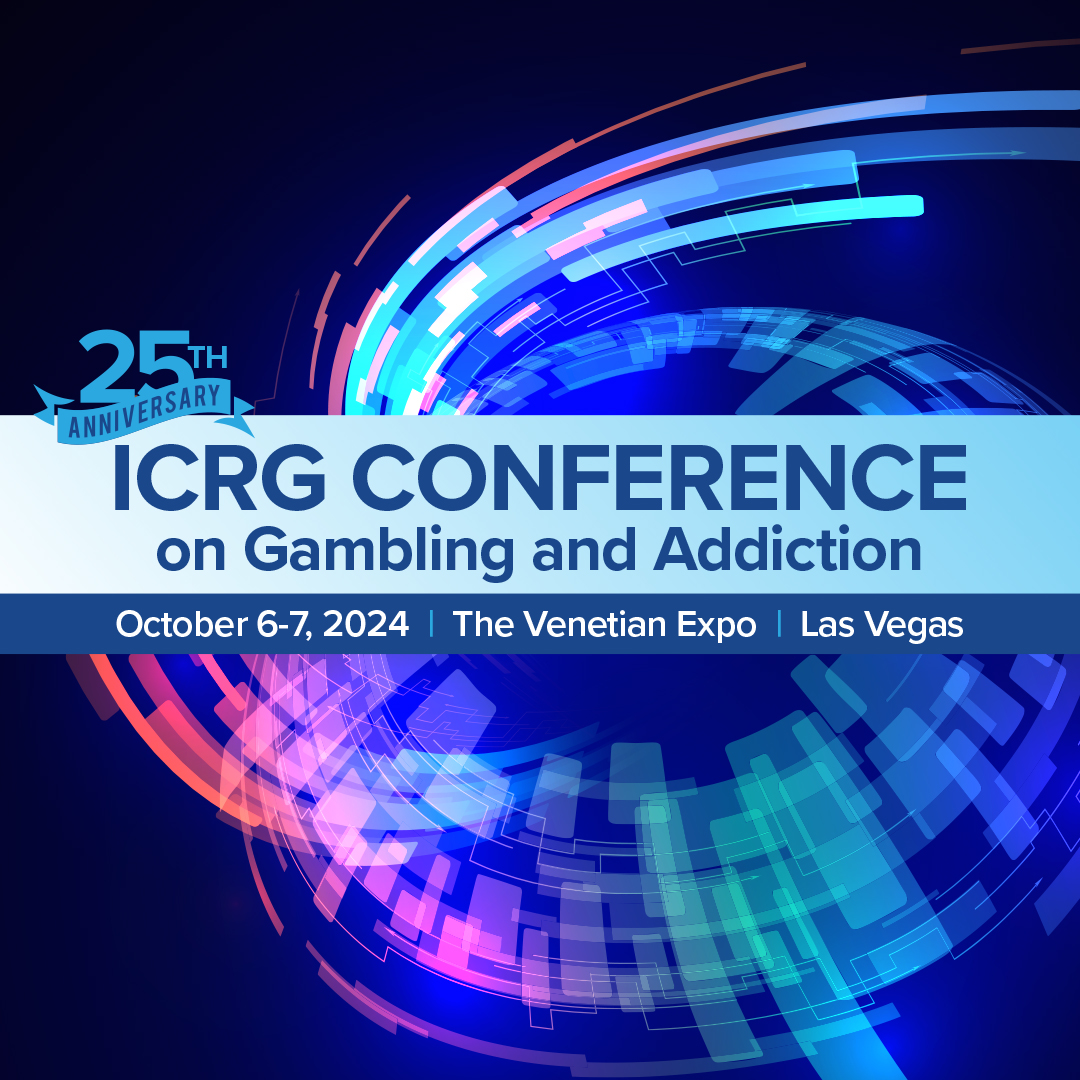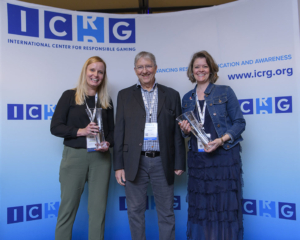

THIS EVENT HAS PASSED
The International Center for Responsible Gaming (ICRG) is pleased to invite you to the 25th annual ICRG Conference on Gambling and Addiction, the preeminent science-based forum featuring the latest research on gambling disorder and responsible gambling. This educational experience offers valuable insights for all stakeholders:

Download the conference syllabus
Treatment Providers and Public Health Professionals will engage in dialogue about:

- Engaging and retaining clients
- A new digital format for CBT and new pharmaceutical treatments
- Why people with gambling disorder don’t seek treatment
- The impact of the changing gambling landscape on clinicians
- Military veterans with gambling problems
- Health disparities in the Latinx community
- Culturally competent, trauma-informed care for Native Americans
Responsible Gambling Professionals, Other Industry Professionals, and Regulators will engage in dialogue about:
- The state of responsible gambling from the perspective of a researcher and a military veteran in recovery
- Players’ understanding of who is responsible for responsible gambling
- How scientists and industry can work together on research projects
Researchers will engage in dialogue about:
- How to investigate digital approaches to prevention and recovery
- The potential of research on ketamine, TMS and psychedelics for gambling disorder
- The state of research on military veterans
- How to develop and test culturally appropriate interventions for minority populations
- How to investigate health disparities among Hispanic communities
- New research presented at the poster session
 All this, plus 13 continuing education hours approved by national and state entities for treatment providers, continuing legal education hours, and a poster session showcasing new research and networking opportunities with colleagues from around the world.
All this, plus 13 continuing education hours approved by national and state entities for treatment providers, continuing legal education hours, and a poster session showcasing new research and networking opportunities with colleagues from around the world.
As we celebrate our 25th anniversary, the ICRG Conference on Gambling and Addiction remains dedicated to delivering the highest quality, research-based programming for all stakeholders in the gambling field. Join us in Oct. as we reflect on a quarter-century of groundbreaking work and look ahead to the future impact of our collective efforts. We look forward to your participation in this milestone event!




